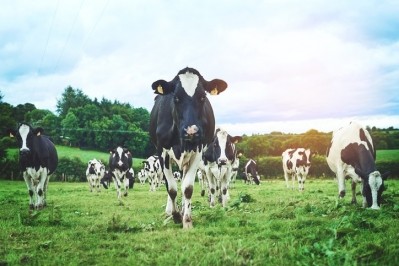UK education initiative on methane and phosphorus management targets feed advisers

FAR ensures that information is reaching feed advisers and livestock farmers and that, consequently, appropriate measures are taken on farm, said Inge Verwoerd, AIC Technical Manager for Feed and FAR (Feed Adviser Register).
She said the new training session – Module 4 - is split into two sections featuring five presentations by leading experts. “Section one includes two on ruminants covering phosphorus and methane, and one on monogastrics dealing with phosphorus. Later in the year, we will launch section two to address nitrogen in ruminants and also in monogastrics.”
Module 4 looks to help feed advisers and farmers appreciate how diet optimization can minimize nutrients excesses; it wants to help participants identify ways to improve overall production efficiency, to be aware of factors linked to mitigating environmental impact such as age at first calving.
It also looks to familiarize participants with risk indicators such as milk urea nitrogen (MUN) concentration in dairy cows – how that can serve as an on-farm indicator to guide nutritional strategies and to help reduce emissions of nitrogen to the environment.
In terms of phosphorus management, trainees will learn how to calculate phosphorus requirements and determine when supplementary mineral phosphorus is required, and how much. Participants will also be told about the differences in phosphorous availability between various raw materials and how to formulate to ‘available’ phosphorus where and when possible. They would also be informed about the rules of thumb percentage phosphorus contents of diets, especially in dairy, on percent of dry matter to allow quick assessments.
Methane mitigation
The aspects of the course dealing with ways to mitigate methane emissions in ruminants includes sessions on forage quality and digestibility, diet composition and feeding management as well as the use of additives to improve rumen function.
FAR now has over 1100 feed advisers spread across the UK and the Republic of Ireland, covering ruminants and monogastrics.
Verwoerd said some 1,000 of those have completed FAR Module 3, which consisted of workshops on the whole farm nutrient balance including feeding but also manure use efficiency, soil nutrient content, efficient use of housing, understanding of environmental policy and effective nutrient measuring.















